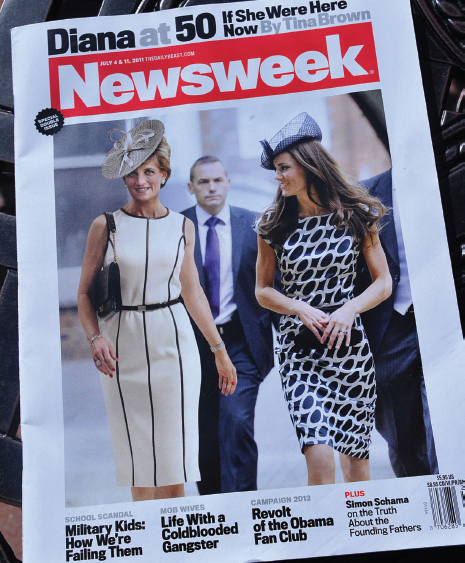Printed Page 114
CONVERGING MEDIA
Case Study

Print, Web, and Synergy
Media convergence has led to a number of high profile mergers—some successful, others less so. One recent merger may stand as a sign of the times in the magazine industry—Newsweek’s 50/50 joint venture with the Web-based Daily Beast. The merger paired a heritage newsmagazine that had been around since 1933 with a veritable toddler in the news business. But sometimes mergers don’t work out as expected.
The Daily Beast, launched in October 2008, was barely two years old when the merger was announced in November 2010. But the people behind the Webzine could hardly be called upstarts. IAC/Inter ActiveCorp, the parent company of the Daily Beast, was chaired by Barry Diller, an experienced mass-media executive whose accomplishments include launching two national television networks (Fox and USA).
Tina Brown, a founding partner of the Daily Beast, also had considerable media experience. After filling similar positions of authority at Vanity Fair and the New Yorker, she earned a reputation for rejuvenating established magazines. Her exploits in the magazine industry resulted in her being named editor in chief of both Newsweek and the Daily Beast after the merger. In this merging (and converging) of traditional print and emergent digital newsmagazines, Brown had expected to forge an inventive and profitable new model: “I see Newsweek and the Beast as a marriage between Newsweek’s journalistic depth and the vibrant versatility the Daily Beast has realized on the Web. . . . The two entities together offer writers, photographers and marketers a powerful dual platform.”1
In her capacity as editor in chief, Brown was responsible for perhaps the most controversial magazine cover of 2011: an unflattering photo of presidential candidate Michele Bachmann, attracting Web-like attention to a newsweekly at a time when so much media attention was devoted elsewhere. Unfortunately, despite high expectations, the Daily Beast seemed unable to lend its momentum to the print publication, at least in part because Newsweek failed to integrate its more traditional editorial content with the pace and relevance of the Webzine’s. In October 2012, Tina Brown announced that after nearly eighty years of print publication, Newsweek would transition into a digital newsmagazine by the year’s end.*
Though the merger failed, a key idea behind it has since proven successful online: linking the power of news aggregators with the solid reporting of traditional news outlets, as practiced by such Webzines as the Huffington Post, Buzzfeed, Media Bistro, and others.